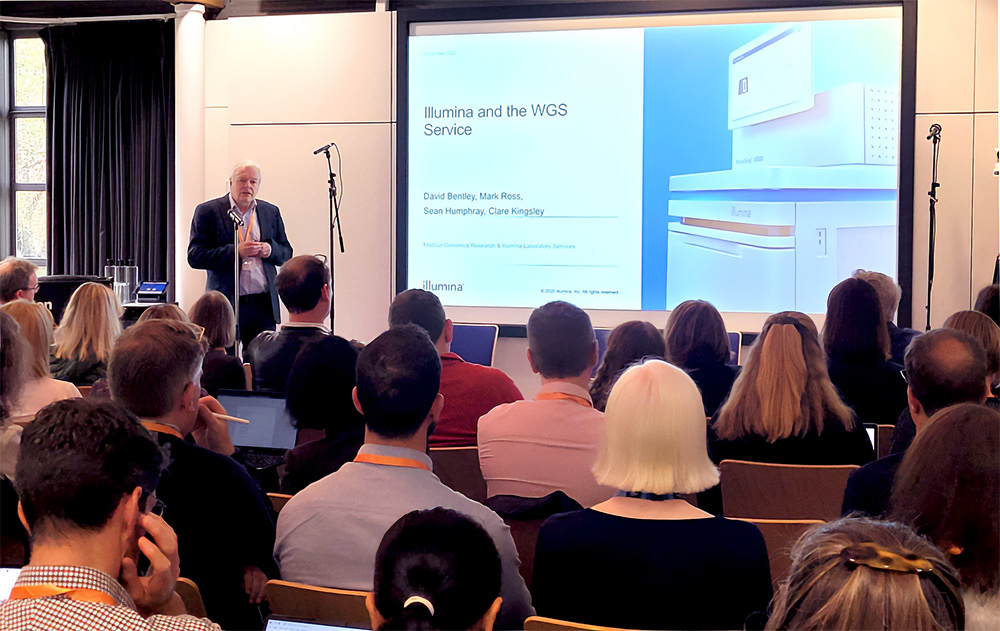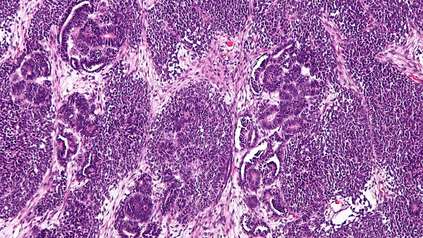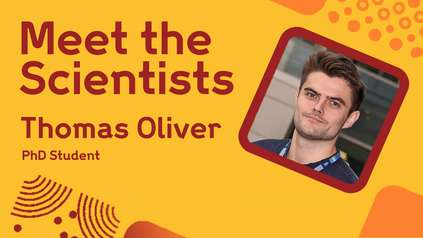Recommendations to increase access to whole genome sequencing for children with cancer
Listen to this article:
Listen to “Recommendations to increase access to whole genome sequencing for children with cancer” on Spreaker.
NHS England is one of the few health services in the world that has a national initiative offering universal genome sequencing to every child with cancer. However, since its rollout in 2021, the use of WGS in clinical practice has not yet seen widespread use and it seems that some childhood cancer units have greater accessibility to this tool than others.
In October 2022, clinicians and scientists from across the UK attended a workshop event to discuss some of the reasons behind this. This was organised by the Wellcome Sanger Institute, Wellcome Connecting Science, the CRUK Cambridge Centre Paediatric Cancer Programme, University of Cambridge Department of Paediatrics and NHS East Genomics.
The results of the workshop, published in BMC Medical Education, highlight some key education and training targets to support uptake and successful implementation of WGS across the UK.
These include training for healthcare professionals to better understand the process of requesting WGS in different NHS Trusts, as well as raising awareness that this tool is valuable for clinical management, treatment approaches and research. There is also a need for training around the consent information required, the subsequent potential to identify inherited variants and the best ways to communicate results to children and families.
Key training opportunities identified for clinical scientists included better understanding of how to identify potential opportunities for clinical trials, as well as better understanding of WGS for all healthcare professionals involved in Genomic Tumour Advisory Boards (GTABs).

Since the workshop, the Cancer Genomic Improvement Programme (CGIP) has been established to tackle the end-to-end turnaround times approved for a series of solid tumours and haemato-oncology. This was funded by the NHS England Cancer Programme in 2024–2025. Cancer Research UK also recently launched its new genomics policy position statement.
“We designed the workshop to uncover a broad spectrum of implementation barriers, using the COM-B model to pinpoint the key factors essential for driving effective behaviour change, in this case, the adoption of whole-genome sequencing. By framing the interactive sessions around targeted questions from the COM-B framework, we identified where education and training could deliver the greatest impact.”
Dr Michelle Bishop, Associate Director for Learning and Training at Wellcome Connecting Science, who led the workshop and is first author on the paper
“Whole-genome sequencing provides the gold standard, most comprehensive and cutting-edge view of cancer. Despite this, the uptake across the NHS has been varied. Working together with other experts from across the UK, we have developed recommendations that we hope will help break down the barriers that many face in accessing whole-genome sequencing for their patients. This test is a powerful example of how genomics can help provide better, individualised care to children with cancer, and it is important that as many people as possible have access to it.”
Professor Sam Behjati, Group Leader and Senior Research Fellow at the Wellcome Sanger Institute
“The East Genomic Laboratory Hub, commissioned to provide whole-genome sequencing testing by NHSE according to the National Genomic Test Directory, recognise the huge importance of working with our colleagues in paediatric oncology and haemato-oncology to establish clinically useful pathways. The East GLH team of clinical scientists have gained extensive experience of analysing and reporting paediatric cancer whole genomes and are always keen to support the diffusion of knowledge across the national Genomic Medicine Service. This workshop provided an excellent opportunity for knowledge transfer and establishing new training opportunities, ultimately with the aim of supporting equitable access to whole-genome sequencing for all children diagnosed with cancer in the English NHS.”
Dr Sarah Bowdin, Medical Director at the East Genomic Laboratory Hub
More information
Publication
Bishop M, Vedi A, Bowdin S et al. Identifying barriers and opportunities to facilitate the uptake of whole genome sequencing in paediatric haematology and oncology practice. BMC Med Educ (2024); 24: 1273. DOI: /10.1186/s12909-024-06219-y
Funding
This work was funded by Wellcome.





